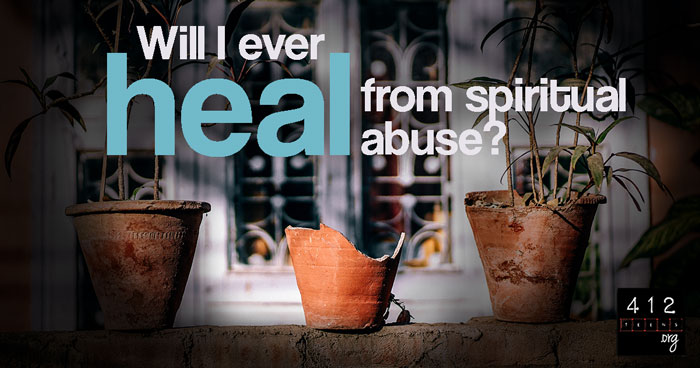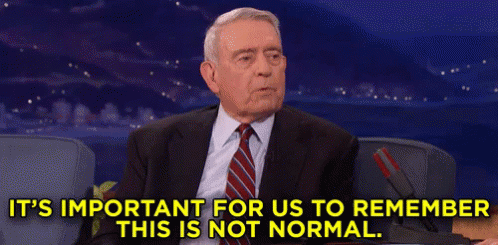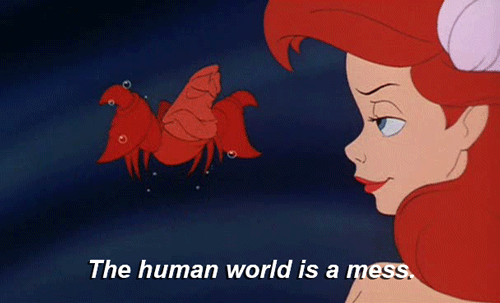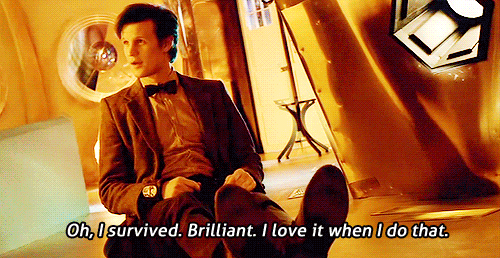How do I heal from spiritual abuse?

Educating yourself on spiritual abuse and the signs of spiritual abuse is a critical first step toward recovery. Many spiritual abuse survivors have grown up in communities that deny spiritual abuse exists as a real issue. But spiritual abuse is very real; it is a violation of a person's absolute foundation for trust, value, and worthiness. Such deep, visceral betrayal takes time to heal from, and there is no shame in that.

If you've sought healing already and haven't found anything that helps, please don't give up hope. You're not "doing it wrong" or hopeless. It's a rough journey, and we'll do our best to give you some direction.
1. Finding a Counselor
A good counselor can help you navigate through your painful experiences as you begin to process them in a healthy way (Proverbs 28:26). But finding the right counselor for you can be hard. You may have to try a lot of different counselors or secular counselors or Christian counselors outside your denomination. You may have to start out by saying, "I don't know if I can trust you. I don't want to be here." And that's OK. Finding a counselor is a journey all on its own, and you're not being "too picky" if it takes you a while to find one you feel comfortable with.
2. Support Groups are Critical
Whether you're leaving a cult, recovering from physical/sexual abuse from a spiritual leader, or seeking recovery from a hyper-critical religious community, learning to trust again is a tough process. A survivor stepping out of an abusive community may experience chronic guilt, anxiety, depression, anger, and a lot of fear. Abusive leaders may have required absolute submission from their followers. This creates a barrier between the survivor and anyone claiming to offer help, like a counselor. Is the counselor going to pull their own power play on me? Are they going to shame me in ways I can't see? Can I even trust myself? Am I the only one having these issues? Is it all just in my head?

This is where support groups are critical. Perhaps you have a couple friends who left their own abusive communities. Are they working toward health? If so, surround yourself with those people. If you don't have any support or relationships outside of the abusive community, see if your counselor can recommend a local support group.
If you don't have a counselor or aren't ready to ask, carefully and prayerfully search for spiritual abuse support groups online. Join one and see how the members respond to each other's struggles. Are they supportive? Bitter? Condemning? You'll be able to tell if it's a place you really want to be...or not. (There are some very good ones!)
3. Allow Yourself Time to Grieve
Grieve the loss of your community. Often we associate grief with losing a good thing—a family member, pet, or your old school or town. When you leave a spiritually-abusive community, you're still losing something—the innocence from when you believed that community was good, relationships you valued. Perhaps you're losing your foundation in God or security in what you believed to be true. By leaving a spiritually-abusive community, you have lost a lot. Accepting and mourning the reality of that loss is part of the process of healing.

Grief does NOT have a timeline. You may feel like you should be "over it" in a given amount of time, but grief doesn't work that way. If your grieving process takes longer than you want it to, that's OK and nothing to be ashamed of.
4. God's Love is Unconditional & Unchanging
Many spiritually-abusive communities will use words like "love," "faith," and "grace" falsely. Survivors may have grown used to hearing variations of "God loves you, but you don't have enough faith" as an excuse for why they're being treated with no compassion—as though God's love were conditional upon a strong faith. They may have been told that if a believer has God's grace, they will have peace, and that any lack of peace means they've done something bad and are being punished.

These definitions and contexts for "love," "faith," and "grace" are WRONG. They portray a God who is constantly looking to rebuke, harm, and shame. NONE of these definitions are biblically accurate. God is love (1 John 4:8); He seeks to save all (Luke 19:10); He is compassionate (Matthew 14:14), merciful (Luke 6:36), and forgiving (Matthew 9:1-8). As children of God, we are subject to conviction of sin by the Holy Spirit (John 16:8) but not to shame. Romans 8:1 says, "There is therefore now no condemnation for those who are in Christ Jesus."
One of the steps in the journey to health is learning how far God's love extends. God's love doesn't change (Malachi 3:6) even as we flail about, trying to process trauma. If you find you can't touch a Bible without a panic attack, or say a prayer without breaking down in fearful tears, or attend another church—God's love for you doesn't fade or change. He's still there, caring for you, protecting you, and providing for you. He's even there to listen as you shout at Him for allowing the abuse to happen in the first place. Don't worry—He can handle it.
Know that the path to healing is a difficult one but not impossible. The sense of injustice spiraling in your heart is a natural response to the wrongs done to you. Don't give up. You are prayed for. You are loved. You have a future beyond the abuse. You are not a lost cause. You are not worthless. We at 412teens love you very much, and God loves you even more than words can describe.



TL;DR
Healing from spiritual abuse takes time and patience, just like a broken leg or an illness. Finding a counselor and a support group can help you sort through the trauma and emotions, but it's also important to grieve the huge changes that will come with leaving the abusive community. Just like physical healing, the emotional and spiritual healing process will take time and look different for everyone. Fortunately, one thing that never changes is God's love for you (Malachi 3:6), which never includes shame or condemnation (Romans 8:1).

Writer/Editor: September Grace
September is an avid film nerd from growing up on weekend trips to Universal Studios Hollywood. She is passionate about the intersections of Christian spirituality, faith, and storytelling in popular culture. Outside of 412teens and digging up obscure horror flicks from the 2000s, she works as a freelance developmental editor and acquisitions consultant while comforting her clingy feline floof, Faust, from the anxiety of existence.
